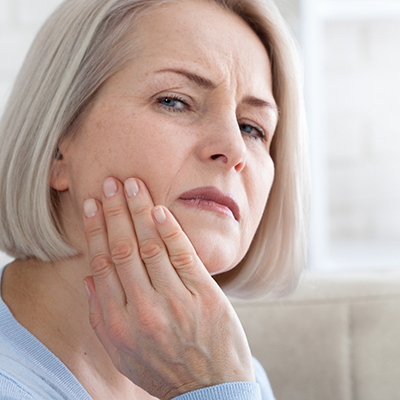Emergency Dentist River Ridge
Professional Care When You Need It Most
At Plaisance & Bostick Family Dentistry, we understand how sudden and frightening emergencies can be, especially when it comes to something as fragile and vital as oral health. If you or a family member is experiencing severe dental pain or injury, don’t wait – contact our dental practice in River Ridge as soon as possible to schedule an appointment! We don’t want anyone to have to wait for the relief they need, which is why our team strives to see emergency cases as soon as possible.
Why Choose Plaisance & Bostick Family Dentistry for Emergency Dental Care?
- Talented Dentist with Over a Decade of Experience
- Calming Dental Sedation Available
- Insurance-Friendly Dental Practice
What to Do in a Dental Emergency

- Call our office. The sooner you contact us, the better chance we have of getting your smile back on the right track. Over the phone, an experienced team member will provide first-aid instructions to help you manage your emergency in the meantime.
- Have an emergency exam. When you get to our office, we’ll conduct a detailed examination to identify the cause of your emergency. Based on our findings, we’ll create a custom treatment plan to restore your oral health.
- Get the care you need. During your appointment, we might be able to temporarily address your emergency. However, you may also have to return for additional treatment, like fillings, crowns, root canal therapy, or gum disease treatment.
The Most Common Dental Emergencies
First, you should call our office and schedule an emergency appointment if you ever find yourself in an urgent situation. Our team will assist you as quickly as possible to ensure you get the relief you deserve. In the meantime, we’ve included some helpful tips below on how to deal with the most common dental emergencies we see.
Understanding the Cost of Dental Emergencies

No two cases are the same, which is why it’s impossible to predict the cost of your dental emergency until you come in for an exam. The type of care you need will depend solely on the nature and extent of your problem. Rest assured – our team will thoroughly explain the pricing information and your available financing options to ensure you know what to expect. The last thing we want is for you to find surprises on your bill!
How to Prevent Dental Emergencies

Dental emergencies aren’t entirely preventable, but there are many steps you can take to significantly lower your risk of one occurring. Avoiding particularly tough or sticky foods can help patients lessen their risk of experiencing a dental emergency, as can wearing a sportsguard when participating in athletic events. Most importantly, make sure to attend regular checkups with our staff! We can help you prevent small areas of damage from developing into serious concerns in the future.
Dental Emergency FAQs
Will My Toothache Go Away On Its Own?
There’s more than one possible explanation for a toothache, but in general, you shouldn’t count on the pain going away by itself. In fact, you should have the tooth examined as quickly as possible so that any underlying problems can be treated long before they lead to more complex dental issues. Note that even if your toothache goes away, that doesn’t necessarily mean that the problem is gone; it could be the result of a severe infection that has killed the tooth’s nerves.
Can the Emergency Room Remove a Tooth?
The doctors at the emergency room tend to be limited in what they can do to help when you have a dental emergency. They may be able to prescribe antibiotics or other medication to treat their symptoms, but they likely won’t be able to remove the tooth; that’s a procedure that can only be performed by a licensed dentist. As such, you should call our office if you suspect that you might need a tooth extraction. (Note that in many cases, it may be possible to save the tooth; we won’t know for sure until we have had a chance to examine it.)
My Chipped Tooth Doesn’t Hurt. Do I Still Need to Visit?
Chipped teeth don’t always cause pain, but that doesn’t necessarily mean that nothing is wrong. Even minor dental damage could still put you at risk for an infection. You may be able to wait a day or two to have a chipped tooth treated, but don’t put it off for too long; acting quickly could be the key to avoiding further damage.
Should Knocked-Out Teeth Be Placed in Water?
A knocked-out tooth needs to be kept moist if you want to have any chance of saving it by the time you get to the dentist’s office. Your first thought might be to put the tooth in water, but this can actually damage the cells on the root, thus making it less likely that we will be able to perform a successful reimplantation. You should place the tooth in milk or saline solution instead. Alternatively, you can try to put it back in its socket or store it in your mouth between your gums and the inside of your cheek.
I Need a Checkup & Cleaning I Need a Dentist for My Child I Have a Cavity/Broken Tooth I'm Missing One or More Teeth I Want to Enhance My Smile I Want to Straighten My Smile I Have Jaw Pain/Headaches I'm Scared of the Dentist View Our Services






